
Alchemilla is a genus of herbaceous perennial plants in the family Rosaceae, with the common name lady's mantle applied generically as well as specifically to Alchemilla mollis when referred to as a garden plant. The plant used as a herbal tea or for medicinal usage such as gynaecological disorders is Alchemilla xanthochlora or in Middle Europe the so-called common lady's mantle Alchemilla vulgaris. There are about 700 species, the majority native to cool temperate and subarctic regions of Europe and Asia, with a few species native to the mountains of Africa and the Americas.
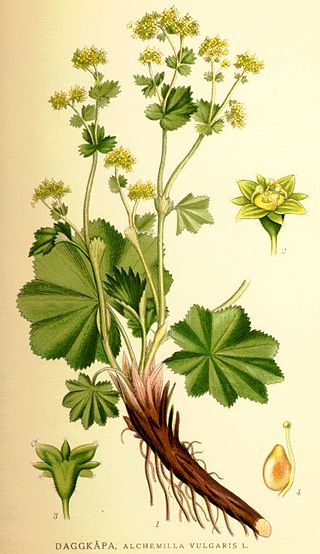
Alchemilla vulgaris, common name Lady's mantle, is an herbaceous perennial plant in Europe and Greenland. These perennial wildflowers, members of the rose family, are sometimes grown in gardens - mainly for their leaves, which collect sparkling water droplets.

Alchemilla arvensis, known as parsley-piert, is a sprawling, downy plant common all over the British Isles where It grows on arable fields and bare wastelands, particularly in dry sites. The short-stalked leaves have three segments each lobed at the tip. Flowers April–September. The tiny green flower has four sepals and no petals, the fruit is oval pointed. Stipules form a leaf-like cup, enclosing the flower. The name of parsley piert has nothing to do with parsley. It is a corruption of the French perce-pierre, meaning 'stone-piercer' and was given to the plant because of its habit of growing in shallow, stony soil and emerging between stones. As in the case of saxifrage it was wrongly assumed that the plant could pierce stones; and it was thought that a medicine made of parsley piert would break up stones in the bladder and kidneys. Old folk-names for the plant include 'colicwort' and 'bowel-hive-grass', showing that it was also used for intestinal ailments.

Alchemilla glaucescens is a species of plants belonging to the family Rosaceae.
Alchemilla sarmatica is a species of plants belonging to the family Rosaceae.
Alchemilla heptagona is a species of plants belonging to the family Rosaceae.
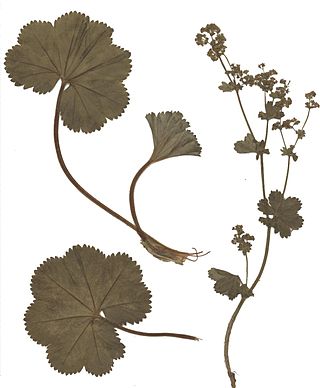
Alchemilla filicaulis is a species of plants belonging to the family Rosaceae.
Alchemilla glomerulans is a species of plants belonging to the family Rosaceae.

Alchemilla monticola, also called hairy lady's mantle, is a species of plant belonging to the family Rosaceae.

Alchemilla xanthochlora is a species of plants belonging to the family Rosaceae.

Alchemilla subcrenata is a species of flowering plant belonging to the family Rosaceae.
Alchemilla propinqua is a species of flowering plant belonging to the family Rosaceae.
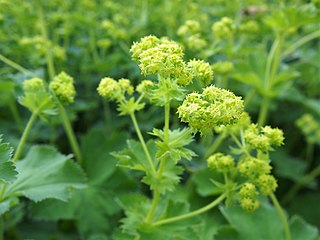
Alchemilla plicata is a species of flowering plant belonging to the family Rosaceae.
Alchemilla obtusa is a species of flowering plant belonging to the family Rosaceae.

Alchemilla murbeckiana is a species of flowering plant belonging to the family Rosaceae.

Alchemilla micans is a species of flowering plant belonging to the family Rosaceae.

Alchemilla glabricaulis is a species of flowering plant belonging to the family Rosaceae.
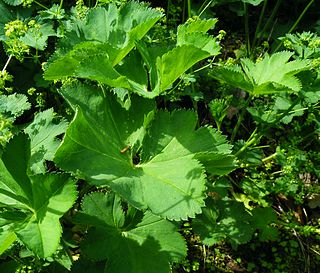
Alchemilla cymatophylla is a species of flowering plant belonging to the family Rosaceae.
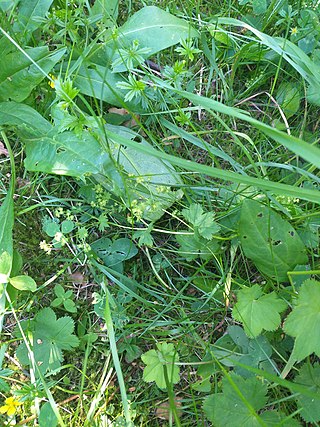
Alchemilla baltica is a species of flowering plant belonging to the family Rosaceae.

Alchemilla flabellata, the fan lady's mantle, is a species of flowering plant in the family Rosaceae. It is native to central and southern Europe, Ukraine, and possibly central European Russia, and is locally extinct in Czechoslovakia. It prefers to grow in mountainous areas in calcareous meadows.















